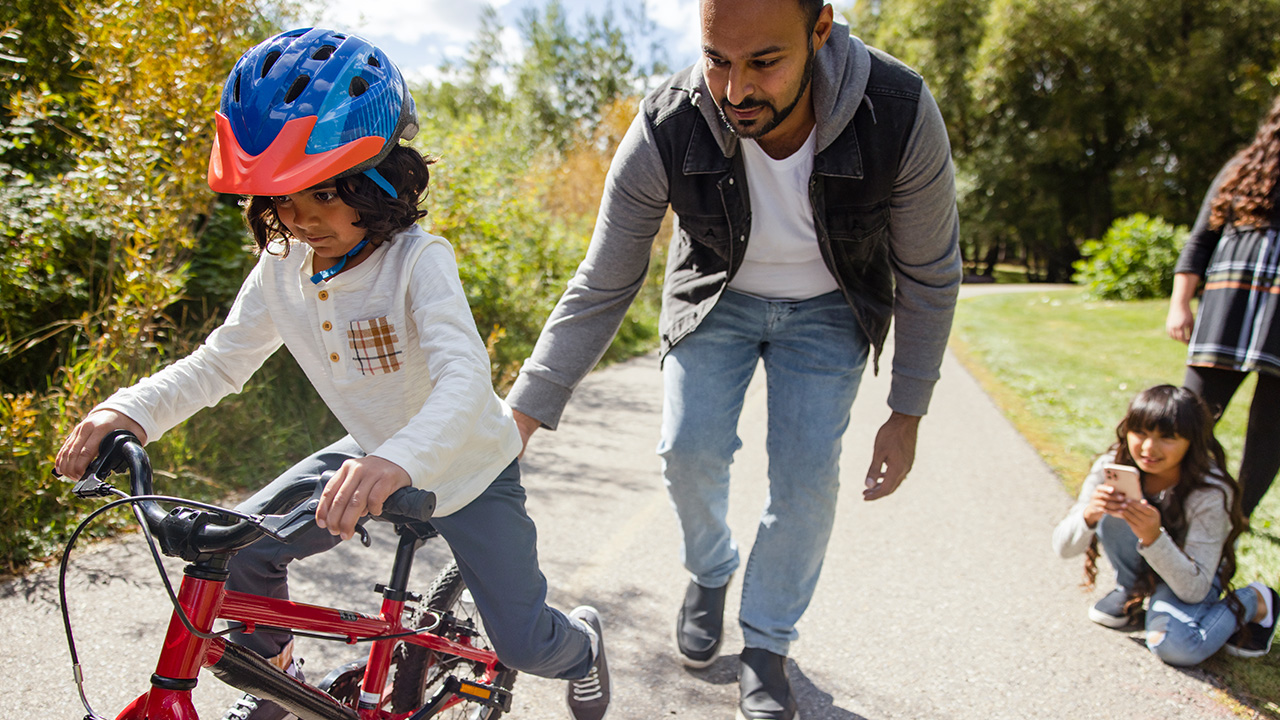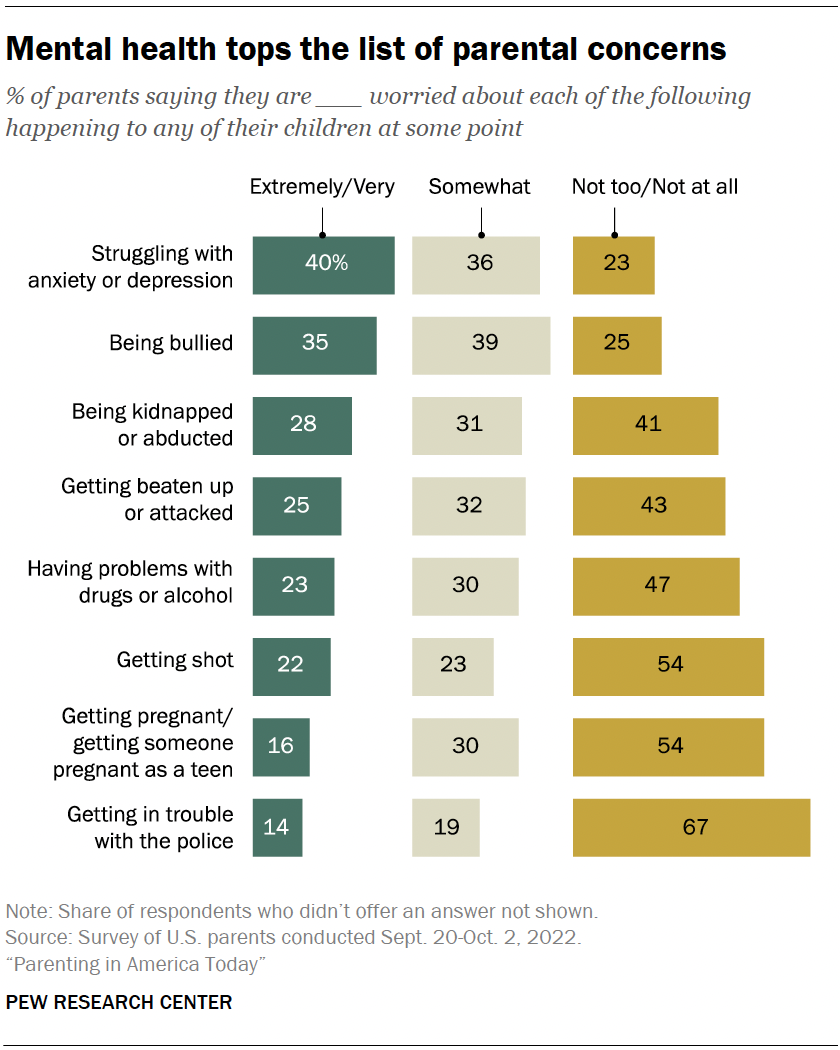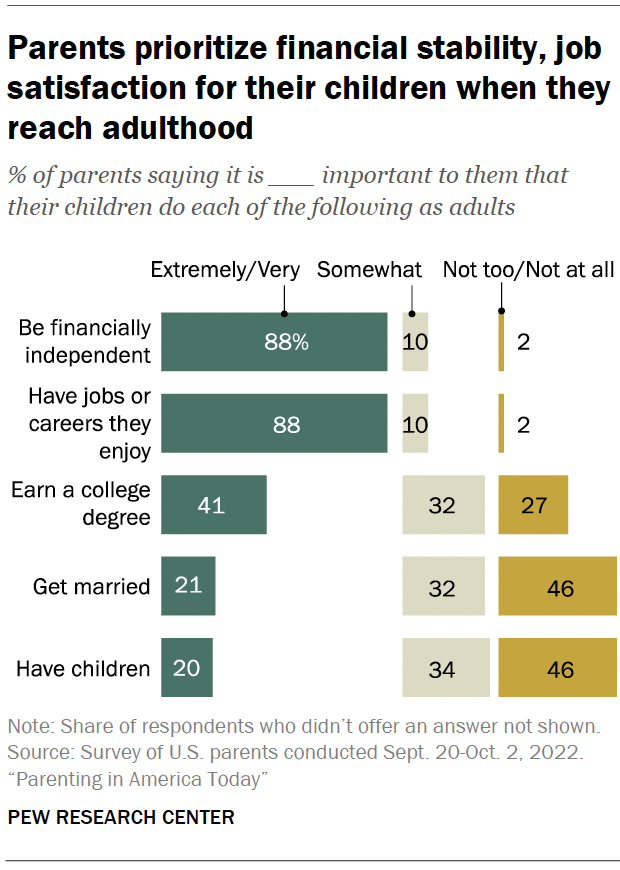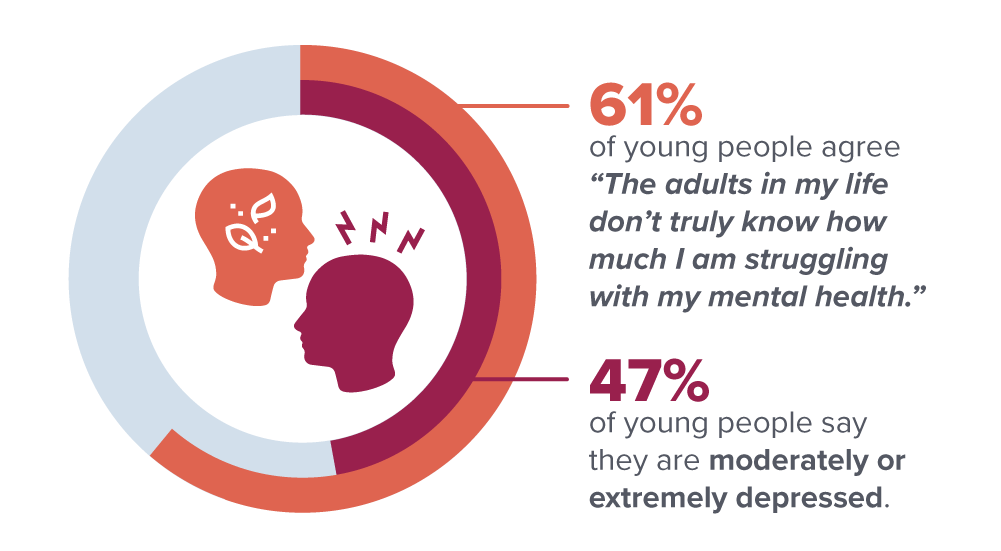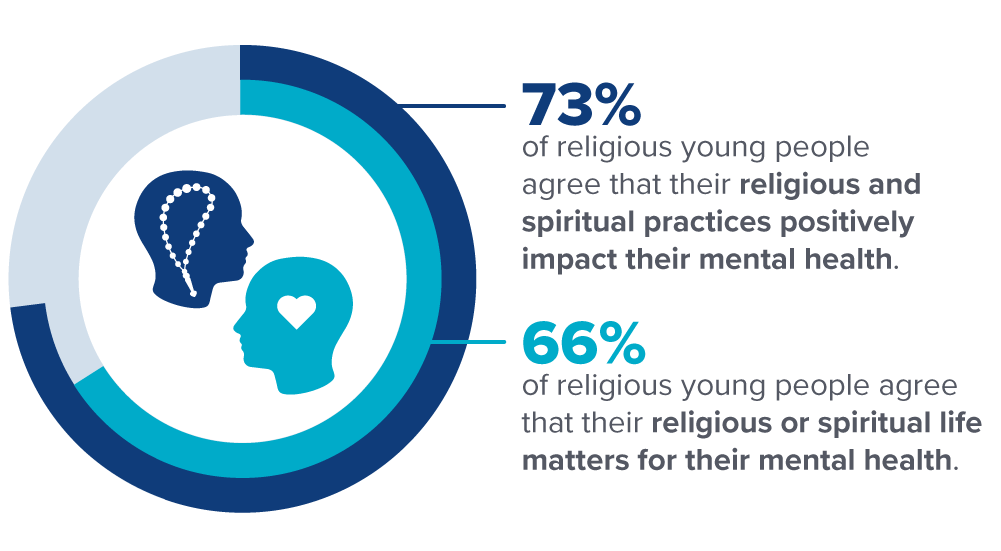In the wake of the COVID-19 pandemic and amid reports of a growing youth mental health crisis, four-in-ten U.S. parents with children younger than 18 say they are extremely or very worried that their children might struggle with anxiety or depression at some point.
Yet recent studies show that Christians are not particularly focused on leading their children into the parent's religion.
Be informed, not misled.
Reasons for parents to be concerned.
Pew Research has found "Mental health concerns top the list of parental worries( at 40%, followed by 35% who are similarly concerned about their children being bullied, according to Pew. These items trump parents’ concerns about certain physical threats to their children, the dangers of drugs and alcohol, teen pregnancy, and getting in trouble with the police."
When asked about their aspirations for their children when they reach adulthood, parents prioritize financial independence and career satisfaction. Roughly nine-in-ten parents say it’s extremely or very important to them that their children be financially independent when they are adults, and the same share says it’s equally important that their children have jobs or careers they enjoy. About four in ten (41%) say it’s extremely or very important to them that their children earn a college degree, while smaller shares place a lot of importance on their children eventually becoming parents (20%) and getting married (21%).
Neglecting so great a salvation
What surprised me in this lengthy, in-depth study was that parents apparently do not believe their religion is important to the life of their children.
To about 66% of parents, being honest and ethical is the most important thing they want for their children. Being a hard worker is second at 48%, being someone who helps others in need is third at 40%---but at the bottom of the list at 16% is the desire that their kids share their faith, and their political beliefs.
Results of another large-scale survey taken last fall by Springtide Research Institute confirm decades of previous research pointing to a positive relationship between religion, spirituality, and mental health.
Springtide found that 61% of youth say, "The adults in my life don't truly know how much I'm struggling with mental health"---47% say they are "moderately or extremely depressed."
Clearly, our kids need help.
More than 73% of kids agree that their religion or spiritual life impacts their mental health, and 66% agree that their religious life "matters for their mental health."
Help me with this: Why would only 16% of parents think it's important to "train up a child in the way he should go" when the kids ---73%---agree that religion is important?
This reveals a huge gap in Christianity today.
I understand the complexities, I've spent my entire adult life in Christian ministry---about 10 years as a youth pastor. And I'm a father and grandfather.
Training up a child is a process, not a one-off event where you have a talk with your kid about religion.
I wish more parents could see the eternal importance of filling our kid's minds and hearts with God's truth.
The secular, humanist, Marxist, and homosexual agents are spending all their time and much of their financial resources to "train up" our kids---to fill the void.
I take heart, however, in the fact that "Some 70% of white Evangelical parents and 53% of black Protestants said it is important that their children share their religious beliefs."
It's disappointing that among white non-Evangelical Protestants that figure is only 29%, while only 35% of Catholic parents think it's important to train up their child in the way he should go.
I'll be talking more about training up a child today on our daily radio program. Please join me.
Be Informed. Be Discerning. Be Vigilant. Be Engaged. Be Prayerful.

